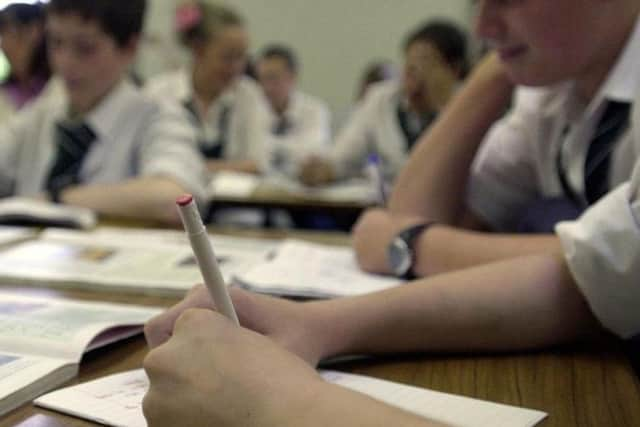We need to change the world of education in order to prepare Yorkshire’s economy for the future - Beckie Hart


Of course, there is a lot more to education than just making young people ‘work ready’ but this component is a vital part of our education system and necessary for balancing the scales of social justice and most importantly to ensure that regardless of where a young person’s life starts does not define their future.
Businesses can and are willing to play their part by working with teachers and schools to shape the education system.
Advertisement
Hide AdAdvertisement
Hide Ad

We have some great examples of businesses working with schools to deliver this already. In Bradford, for example, Specialist People Service work closely with Dixon’s Academy on three core initiatives – CV workshops, mock interviews and world of work presentations.
Some of the students have a fairly limited idea of what the world of work is like, and in just how many ways they can build a successful career in business or elsewhere so the three-pronged approach not only presents opportunities but gives practical support on how to make the most of those opportunities.
Alongside this, employers are also concerned about the curriculum narrowing, such as the ongoing decline in pupils taking Design and Technology.
In addition, the average range of subjects studied at A-level is now fewer than three per pupil, and this despite many other countries moving towards a broader, more diverse, and more balanced curriculum. At the moment, we’re not keeping pace.
So, what can government, with support from employers, do?
Advertisement
Hide AdAdvertisement
Hide AdFirstly, we need to rethink the role and form of GCSEs in an education and training system that goes to age 18, rather than 16, to take into account the development of character and broader skills.
Secondly, the government should look again at how we measure school performance, ensuring schools are not incentivised to offer a narrower curriculum, and thirdly the government should look at how it works with the education sector and employers to develop a shared approach for developing essential behaviours and attributes.
The government should also integrate the new Youth Charter with the careers strategy to ensure the business contribution to young people is recognised.
We have so many talented young people in our region and businesses have a role to play in supporting schools to meet the Gatsby Benchmarks for effective careers advice, ensuring every young person receives at least four interactions with an employer each year from the age of 11.
Advertisement
Hide AdAdvertisement
Hide AdTo support employers to do this, the CBI are developing an online platform to support business and employer engagement with schools and colleges. The platform will help to link business to schools, colleges and universities who need support in improving careers provision and ensure all young people have access to meaningful engagements with employers.